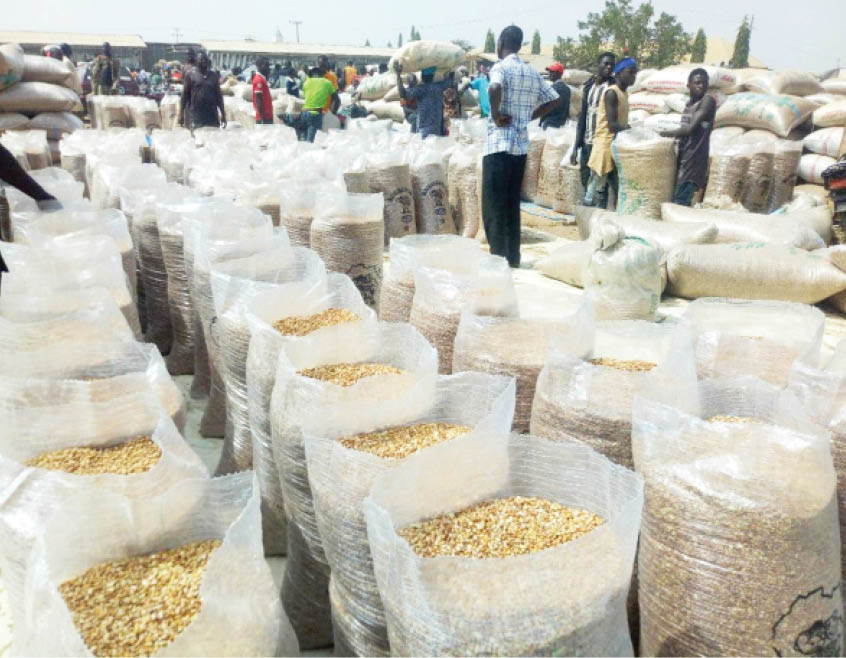Resurgence of hike in prices of farm produce has deepened food crisis in Katsina State, with many small businesses, especially in rural areas, closing shop.
The recent development, according to sources, started last April, while inflation keeps growing, courtesy of dwindling foreign exchange.
A recent report from the National Bureau of Statistics envisioned more hardship for Nigerians as it projected food inflation increase to 40.53 per cent in April, from 40.01 per cent in March this year.
A maize dealer at Dandume market, Alhaji Sabitu Mande, said one could no longer speculate the price of produce in the markets as the country’s economy keeps dwindling.
- Why more Taraba women embrace poultry farming
- Kwara: Govt, fish farmers seek truce over water crisis
“As dealers, we cannot predict what will happen in the next market day. A month ago, we enjoyed significant appreciation of the value of the naira when market price of commodities had started stabilising. From the last three weeks, things began to change and we now experience about 16 per cent increase in the price of maize. We can no longer buy the produce as its price has reached roof top,” he said.
Mande added that prices of farm produce had become almost uniform across Katsina, Kaduna, Zamfara and Kano states; hence they could no longer make meaningful profit in the business.
He further said, “Imagine that in Giwa, Dandume, Funtua, Bakori and Kafur markets, the second highest maize-producing zone in Nigeria, the price of maize has reached over N70,000. Add the cost of loading, off loading and transportation. How much are we going to sell it in places like Sokoto, Jibiya or Kano?”
A check by Daily Trust on Sunday at Dandume and Bakori, the two largest grain markets in the state, revealed that in the last one week, 100kg of maize has reached N72,000 as against N61,000. Sorghum was N68,000 instead of N54,000; wheat has reached N83,000 from N70,000; millet was N71,000 from N65,000; beans moved to N120,000 from N100,000. Soybeans was sold at N68,000 instead of N60,000, while local rice was sold at N125,000.
Abdullahi Dango, a farmer in the state, said the development affected mostly households and farmers.
“We are in a period when most farmers have sold all their grains waiting for wet season to set in to go back to their farms. A measure of maize flour is now N2,000. How do you expect an average family of seven to feed three times a day? A bag of rice seed is now N60,000; and many local farmers are sourcing their seeds from open markets,” Dango said.
He further said many small businesses in villages and towns had closed shop due to high cost of food items.
“Many business owners have eaten up their capital in struggle to feed their families; those who were into the food business can no longer make profit as prices of food items have reached roof top. Everything has come to a standstill in this hopeless situation,” he added.
Dauda Basiru, a grain merchant who was a bureau de change operator in Lagos, said deteriorating naira performance in foreign exchange was the major cause of this galloping inflation.
“Naira is the worst performing currency in the world. Our productivity as a country in areas of manufacturing that can fetch us forex is at its lowest ebb. Some currency operators are hoarding dollar in order to twist the market to suit their selfish interest. Political crises in the Middle East and Ukraine have truncated alternative supply of food items into the country,” Basiru said.
He added that banditry had also reduced a significant volume of grain produced in farming areas by dislodging local farmers from their ancestral homes and preventing them from accessing their farms for years.
“There are large farms in Sokoto, Zamfara, Katsina and Kaduna states that cannot be accessed by farmers for over five years. As a result of the activities of bandits that seem insurmountable, some of the farmers were thrown into cities and towns begging as internally displaced persons,” he revealed.
He enjoined the youth to partake in agriculture and agribusiness as there are bright prospects in the two areas.
“Those that have access to land should produce crops; and state governments should wade in to support real farmers with inputs. We are in economic crisis and need to see genuine commitment of the government to enable us come out of this mess,” Basiru concluded.

 Join Daily Trust WhatsApp Community For Quick Access To News and Happenings Around You.
Join Daily Trust WhatsApp Community For Quick Access To News and Happenings Around You.


